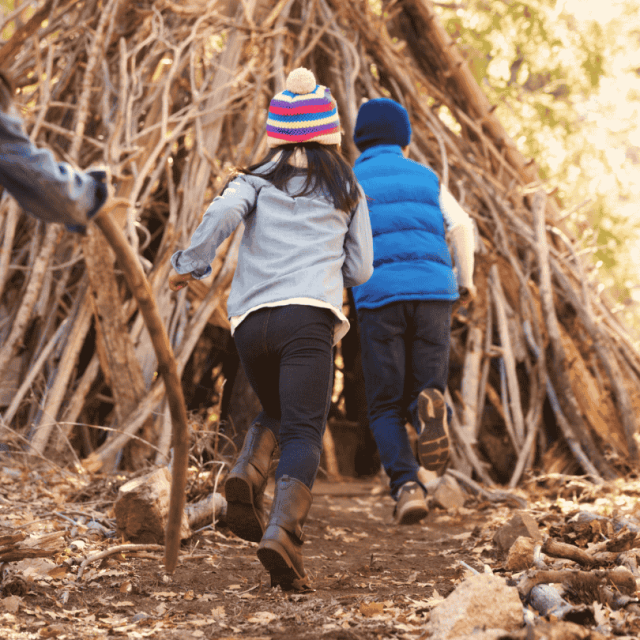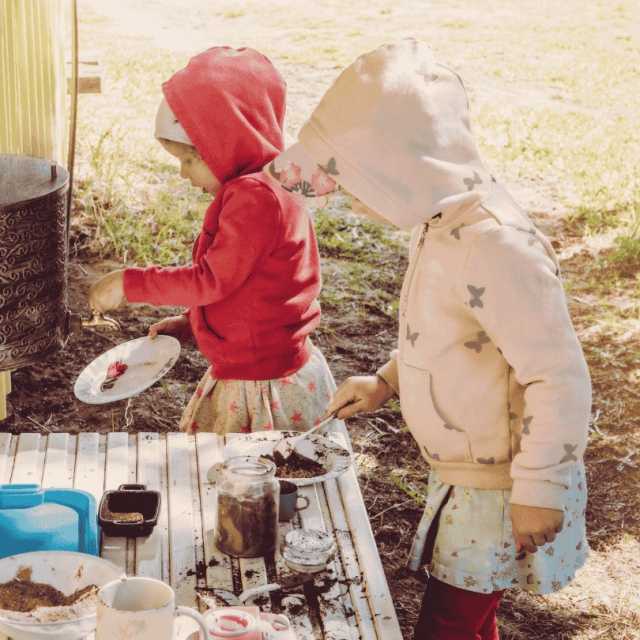Building Resilience & Improving Wellbeing Through Outdoor Education

The Outdoors Group delivers forest school sessions, outdoors education and training inspired by Scandinavian learning traditions.

David is the Muse Wellbeing director and lead curriculum developer. His Main passions include education, surfing and travelling.
Resilience and Wellbeing Through Outdoor Education (Come Rain or Shine!)
At The Outdoors Group, we have been delivering outdoor education in various forms for 12 years and during that time, we’ve learnt a lot! We’ve had some fantastic successes, some epic failures and have tweaked what we do in accordance with the lessons we’ve learned and the experiences we’ve had. We started off running Forest School sessions for local kids and over the years, have expanded to offer an alternative outdoor provision for children struggling in their main educational setting, adult training courses, and an Ofsted-registered full time special school for autistic learners and those with SEN that operates entirely outdoors, all year round.
Whilst the different provision we offer varies quite significantly between business areas, there are some constants that we’ve observed from working with people of all ages in outdoor settings, no matter whether it’s a toddler coming to the woods with their parents once a week for a term or it’s one of our full-time learners at the school.
The Importance of Outdoor Education – All Year Round
One of the key tenets of Forest School (and we think this is applicable to a lot of outdoor education) is that it’s a long-term process, with young people attending on a regular basis, over the course of months and sometimes even years. Whilst this is important for several reasons, one of these is that it gives young people the opportunity to witness the natural world around them at all times of year.

They are able to see the woods starting to wake up in the first months of the year, follow the transition through spring as plants and flowers start to pop up left, right and centre before enjoying the summer with luscious greenery all around them and plenty of wildlife to observe. Then they get to witness the slowing down of the world in the autumn as the leaves start to change colour and fall, as the days draw in and winter starts to creep in at the edges. Experiencing all of this deepens our understanding of our place in the world, of the natural rhythm of the seasons and offers some perspective for young people who are able to gain a broader sense of the context within which they live.
Building Resilience – Positively!
Being outdoors all year round also helps to build resilience. Often, when we talk about this, people use examples such as being bullied or in unpleasant situations as a way of young people becoming resilient. But we’d argue that there are ways to gain this same skill without being miserable or hurt.
Spending time outdoors in all weather conditions is an amazing way to do exactly this. Provided young people have the appropriate wet weather gear, being outside in the pouring rain or freezing temperatures gives us the opportunity to adapt to challenging situations and learn to cope with them with good nature and without wanting to just leave. It also encourages bonding within groups as the weather doesn’t discriminate, everyone outside on the same day will have the same input in terms of the weather they’re experiencing – the difference comes with how they react to it.

Outdoor education also provides the opportunity for young people to build resilience through learning from their mistakes. A lot of activities that we do outdoors are to do with problem solving, engineering or physical skills. Making a plan and executing it doesn’t always go the way our learners want the first time, and this is actually a fantastic thing! Learning from failure is a vital component of the learning journey and being outdoors often facilitates this as we are able to encourage the young people we work with to assess why something didn’t work and try again, making changes as needed (based on their observations) to hopefully allow for a better rate of success when repeated. Learning in this way means that they build resilience as they remain positive and focused and don’t give up, rather persevering to achieve their goals.
Promoting Wellbeing Through Outdoor Education
We all know that being outdoors is good for our mental health but sometimes it’s hard to pinpoint exactly why that is. However, there has been a lot of research over the years that provides us with evidence and reasons for this. From the phytoncides (natural oils) that are released by trees and plants that improve and boost our immunity to the microbes in soil (bacteria called mycobacterium vaccae) that triggers the release of serotonin in our brains, it’s proven that nature really does help in making us happy and well.
So even before you put in the educational elements of outdoor education, even just taking the young people you work with out of the classroom, is likely to have a positive effect on their mental health and wellbeing. In addition to this, the outdoor classroom is often much more accessible as a learning environment for a lot of young people. There are no fluorescent lights outside, no walls, the noise dissipates rather than echoing like it does in a crowded room… in terms of sensory environments, being outdoors often sets up young people for learning in a much calmer and effective way simply by not being inside.
Outdoor Education and Wellbeing: Final Thoughts
A decade ago, Forest School provision and outdoor education within schools was still on the fringes but now, it has been almost universally acknowledged how important being outdoors is as part of a wider educational approach. We know now, through both large bodies of research as well as through countless anecdotal experiences, just how powerful being outdoors is as part of a young person’s education. We know how important it is for their wellbeing and mental health, for their ability to build resilience in a meaningful way and for positive learning outcomes.
Muse Wellbeing
Support
Subscribe for RSHE & Wellbeing Updates & Learning Resources

Copyright © 2025 Muse | All Rights Reserved.
Would you like to logout of Muse Wellbeing?


